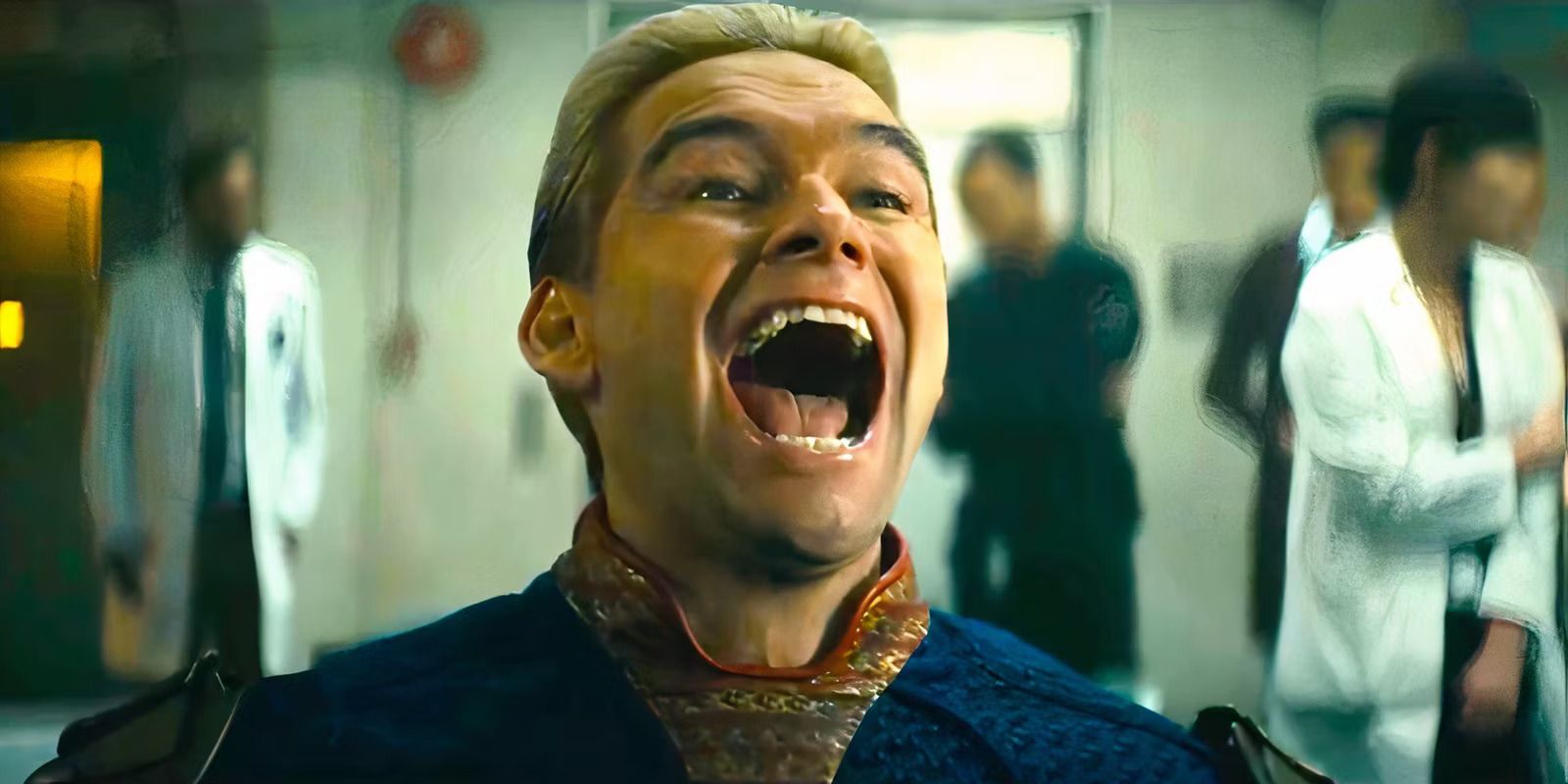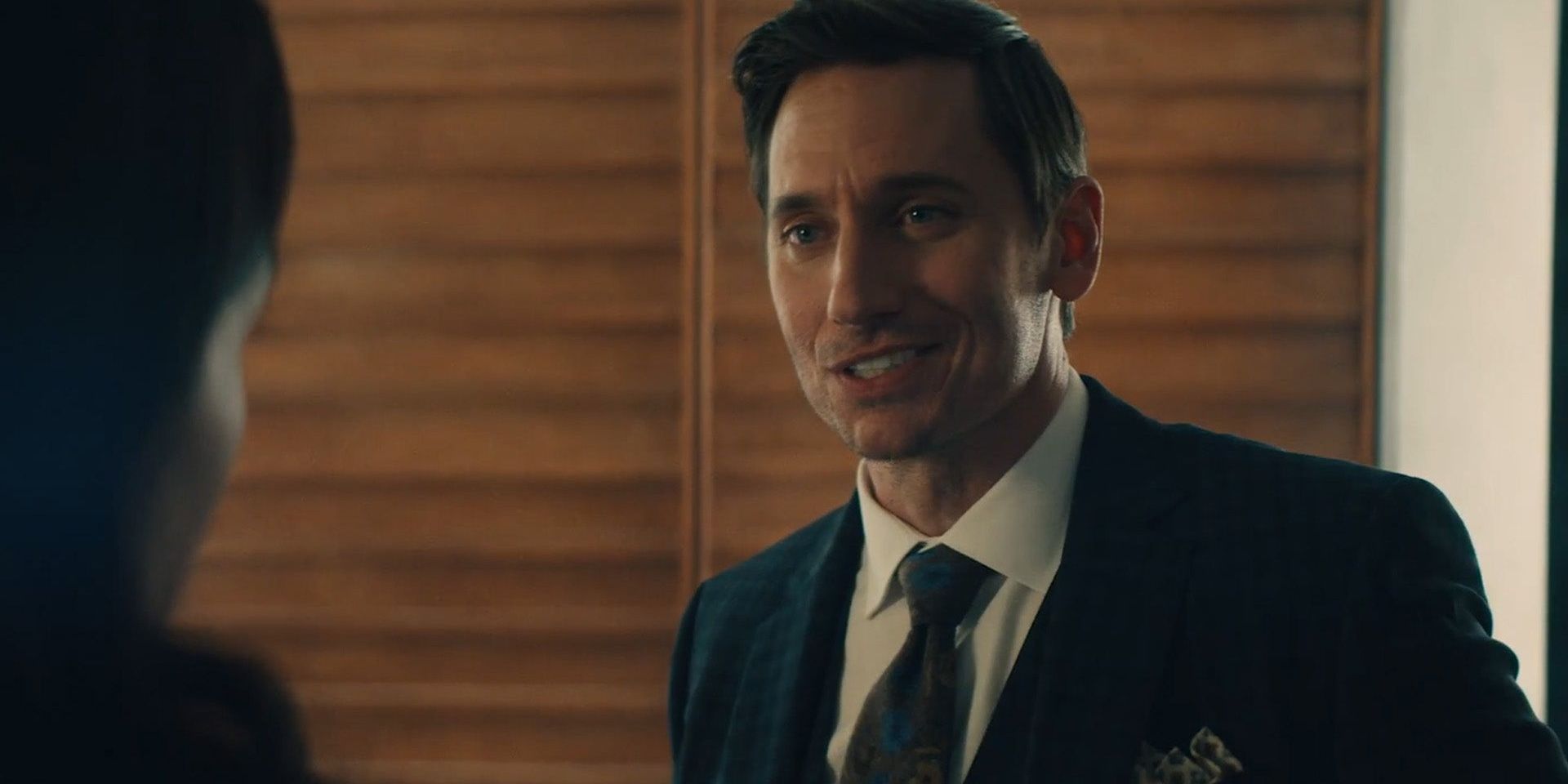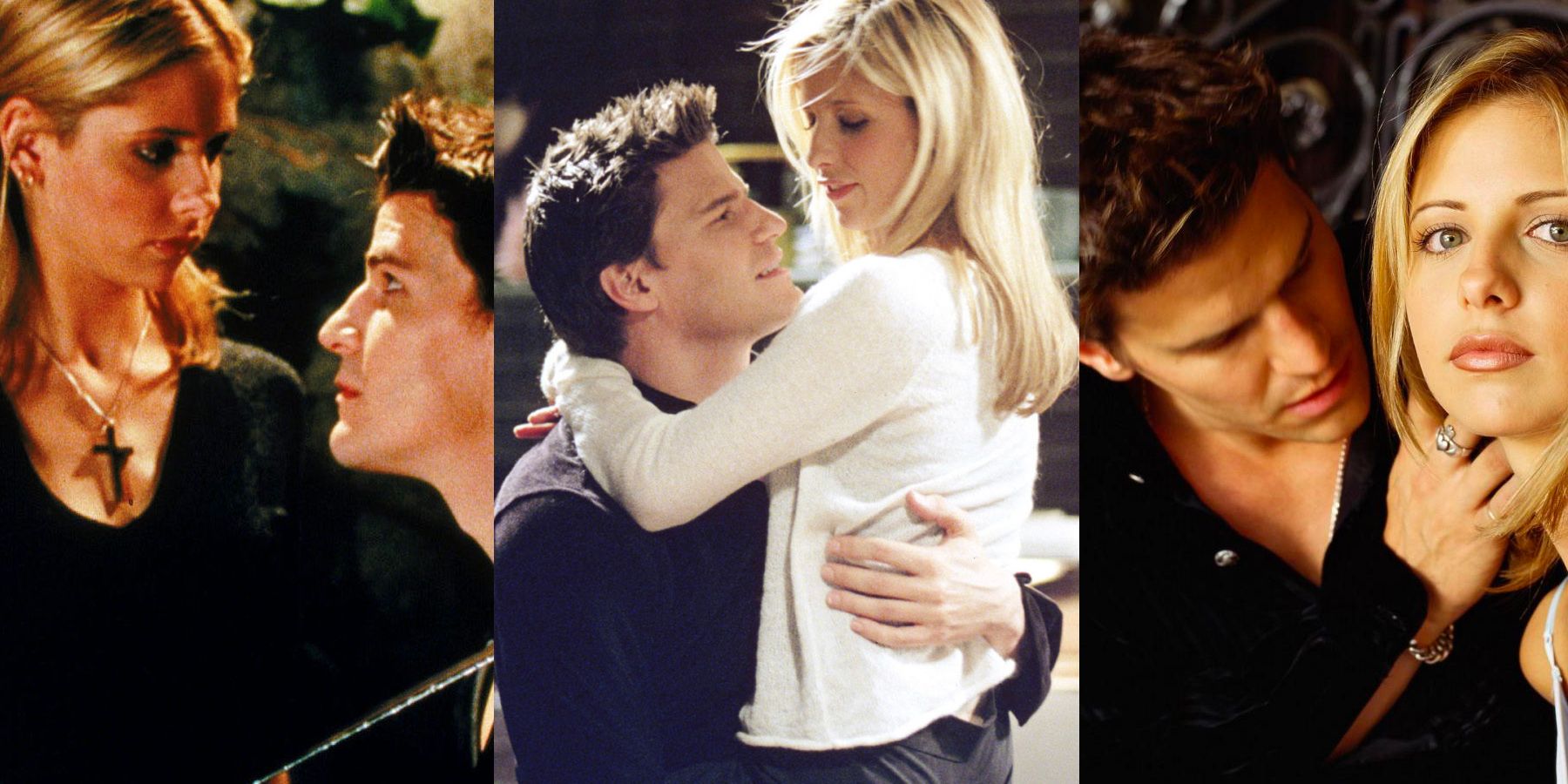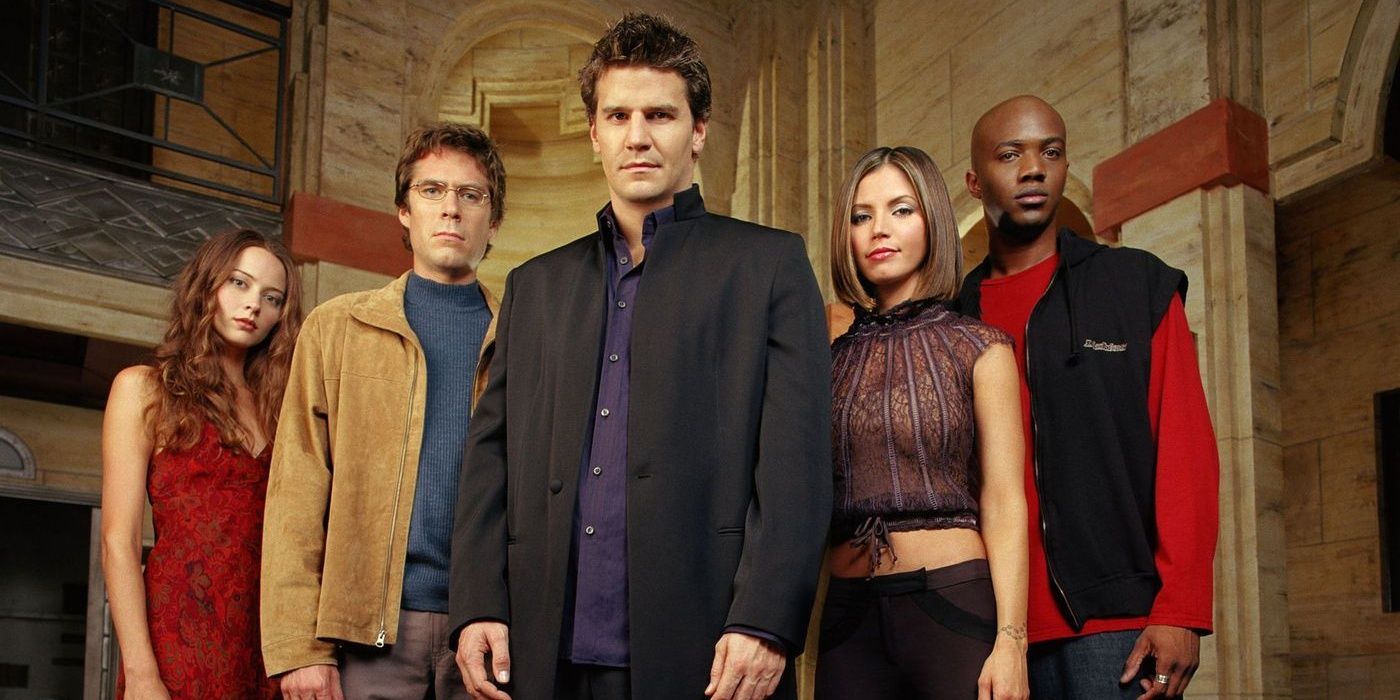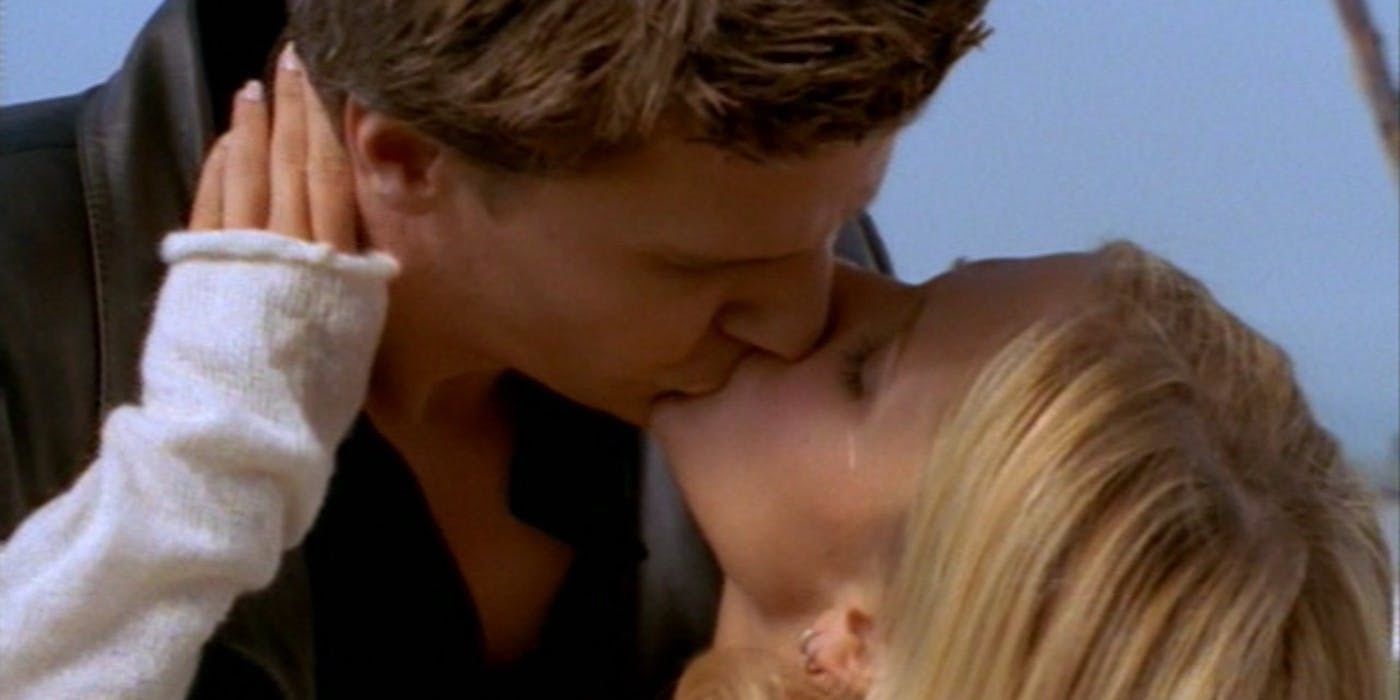The Venn diagram of Buffy fans and Angel fans is not, in fact, a perfect circle. Nor should it be—although the two shows share a great deal in both story and style, they are not completely the same. Whereas Buffy the Vampire Slayer deals much more with the issues that young women face as they come of age, Angel is a broad meditation on the nature of goodness and evil—on the nature of the soul that makes Angel unique among vampires.
Buffy the Vampire Slayer is about a hero struggling to be a normal girl; Angel is about people who can never be normal grappling with the nature of heroism itself. Yet for all Angel does to distance itself from its roots, it is still a continuation of the Buffy story, and it still incorporates aspects of that story—especially in one particular episode, which serves as a perfect coda to the epic romance between Buffy and Angel.
Within the Whedon tv-ography, Angel is perhaps the most balanced work, with weightier philosophical underpinnings than Buffy, a more coherent vision than Firefly, and stronger, more dynamic writing than Dollhouse. It picks up almost immediately after Angel has left Sunnydale for Los Angeles, a city already so false that vampires would hardly need to hide—already so corrupt that the humans themselves are often more malignant than the demons (a point which is made explicitly in one of the series-defining episodes of season 3).
For viewers who are accustomed to the typical slayer calculus of demons being bad, Angel immediately overturns that equation, offering the titular hero a demon companion, Doyle, who is a combination spirit guide and pub-stereotype sidekick. Shortly after meeting Doyle, Angel runs into Cordelia, who is neither as prosperous as she was in high school nor as popular, and she becomes an erstwhile secretary for Angel’s private detective agency, Angel Investigations, which is best summed up by its slogan and mission statement: “We help the helpless.”
In light of recent events, it is worth taking a moment to note that Cordelia—who already has one of the best character arcs on Buffy—only gets more fantastic on Angel. In a show where the principal characters are perfectly cast, Charisma Carpenter’s value cannot be overstated: while it is Cordelia’s acerbic observations and unapologetic candor that carry the show through its lackluster procedural moments, it is Carpenter’s capacity for understated gravity that grounds the larger-than-life drama around her. In a world almost dark enough to warrant Angel’s trademark brooding, Cordelia acts as a filter, telling the audience when stakes are exaggerated, when dangers are underestimated.
Before it really starts to move forward, however, Angel takes time to revisit the unsatisfying conclusion of Angel’s relationship with Buffy. Although the third season of Buffy the Vampire Slayer ends with a bang (or as close to a bang as Buffy and Angel can have), the actual breakup of the Slayer and the vampire-with-a-soul is really more of a whimper. The pair agree to break up before the final showdown with The Mayor, which leads to their climactic finale, and Angel leaves. But he cannot stay away from Sunnydale long, for news comes that Buffy is in Big-Thanksgiving-Crossover danger, and Angel returns to help the Scoobies fight off the supernatural threat…without seeing or talking to Buffy. So what does a girl do when her ex-boyfriend comes to town, helps her slay, and does not bother to check in?
Well, she must go to Los Angeles to tell him off in person, as Buffy does in the unforgettable Angel episode, “I Will Remember You”. It begins with a close-up of a mantel clock, which Angel is setting to the correct time. The shot has significance, as the clock will later count down inexorable reality coming to crush a fading dream. As Buffy and Angel build toward a fight with each other, a demon crashes in, requiring them to fight together once more. The demon is easily dispatched, but it leaves something behind: its blood infects Angel with mortality, turning him from a vampire into a human.
After a period of pure wish fulfillment, Angel concludes that his humanity is a weakness for both himself and the Slayer he loves. He goes, alone, to the divine Oracles and asks that they return him to his vampire state. By the time he tells Buffy that he will no longer be human, there is only a minute left (cut again to the ominous clock) before the day in which this has all happened is erased, wiped from the memories of everyone but Angel himself.
It is impossible to discuss any aspect of the Buffyverse without discussing sex. Sexual dynamics, particularly the pitfalls of sexual relationships, are baked into both Buffy the Vampire Slayer and Angel. In Buffy, sex is a major theme throughout; while Angel dwells less on this theme, sex-as-danger remains a key aspect of its main character, who risks losing his soul to a gypsy curse if he experiences (as both shows describe it) “perfect happiness”.
For Angel viewers who were introduced to the character through the frustrations and failures of his limited physical relationship with Buffy, there is a natural expectation that, once he gains humanity, he will only want one thing. “I Will Remember You” subverts this expectation neatly, as the freshly-de-vampired Angel interrupts his own discussion with Cordelia and Doyle to declare, “I am so…hungry,” before eating everything in the office mini fridge. This may just be comic relief (at which Angel excels), but “I Will Remember You” continues to use Angel’s discovery of food as an avatar for the sheer delight of being human.
Of course, Angel turns his attention quickly from reveling in food to reveling in Buffy (and food), offering fans the low-stakes romantic moments that Buffy the Vampire Slayer so gleefully denied them for three seasons. These scenes are a sort of catharsis for the ongoing romance plot, but they are, in a sense, less cathartic than the final minute—before Angel turns back into a vampire, and Buffy forgets that, for one day, she got to be a normal girl with a normal boyfriend. In many ways, that dream of normalcy has always been Buffy’s core driver, and Angel defines itself as a separate story by subordinating that dream to Angel’s goal of helping the helpless.
Angel’s role on Buffy was to support and empower Buffy; Buffy’s role here is to affirm Angel’s independence as a protagonist, separate from her struggles as the Slayer. What really sells the episode, however, as more than trite fantasy sequence, is Sarah Michelle Gellar’s performance in that final moment. Buffy the Vampire Slayer found its pinnacle in the rare instances when Buffy was allowed to show genuine vulnerability, and “I Will Remember You” includes one of her most vulnerable moments. Buffy’s childlike insistence that she will have her way—her tearful defiance that the day happened, that she will not forget—constitutes one of Gellar’s finest performances as Buffy, and it is absolutely heartbreaking.
Buffy’s story ultimately goes on, apart from Angel, but Angel continues to be a vehicle for Buffy’s discarded characters. The most prominent example is the incorporation of Cordelia and Wesley into the main plot of the show, and the tremendous arcs that those characters undergo. One other, instructive example, however, is the story of Faith, the Slayer-off-the-rails who was last seen seducing Buffy’s new boyfriend and generally wreaking havoc before departing Sunnydale. Her appearance on Angel is a multi-episode redemption story (in which Buffy shows up again, to express her displeasure) that is as moving as it is satisfying.
Taken together, these semi-crossover episodes demonstrate a pattern: where Buffy seeks fundamentally to withhold satisfaction from its viewers, Angel strives primarily to offer redemption in a world that is fundamentally unsatisfying. There is no viewer who watches “I Will Remember You” thinking that Angel’s transformation will be permanent. But the show does what it can to deliver a finale to the Buffy/Angel romance that satisfies its viewers while remaining true to the characters.


